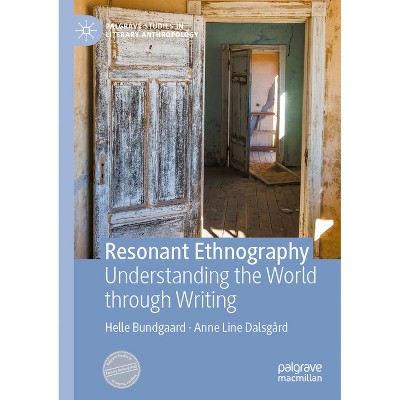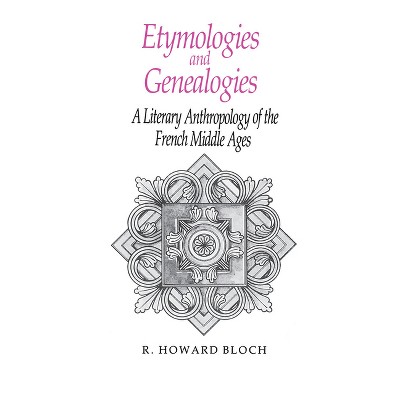Sponsored

Exploring Fields of the Ineffable in Literary Anthropology - by Maja Nazaruk (Paperback)
Pre-order
Sponsored
About this item
Highlights
- Maja Nazaruk offers a panoramic view of Vincent Crapanzano's anthropologically-poetic thinking about the ineffable aspects of life such as otherness, the outer limits of the body, and chthonic pain.
- About the Author: A Polish national from Warsaw, Maja Nazaruk defended her doctoral dissertation at the University of Montreal about epistemology in the works of the founder of modern anthropology - Bronislaw Malinowski.
- 206 Pages
- Language + Art + Disciplines, Composition + Creative Writing
Description
About the Book
Maja Nazaruk explores Vincent Crapanzano's poetic anthropology, focusing on themes like otherness, the body, and trauma. She highlights his use of literary slippage to convey cultural indeterminacy, linking his work to broader debates in literary and philosophical thought.Book Synopsis
Maja Nazaruk offers a panoramic view of Vincent Crapanzano's anthropologically-poetic thinking about the ineffable aspects of life such as otherness, the outer limits of the body, and chthonic pain. In her view, the signature summation of Crapanzano's work is to be found in his spell-working ethnographies from Morocco, South Africa, Algeria, and France as well as the United States of America. By parsing the first sections of his opus on imaginary horizons, the Polish scholar unveils the anthropologist's impulse to resort to the rhetorical device of literary slippage--shifting meaning and the indeterminacy of meaning, in his intention to convey the "irreality of the (native's) imaginary." Slippage is the pivot that makes Crapanzano switch between alterity (how the native feels foreign) and the themes of the body and trauma (that are coincidentally perceived as being foreign even to the persons to whom they belong). By bringing them to the common denominator of inquiry-driven prose poetry that underscores cultural critique and literary anthropology, Crapanzano offers a contemplation of the undefined nature of human existence. Delving into the problem of signification and of substance in the works of Judith Butler, Cathy Caruth, Elaine Scarry, Talal Assad, Mariella Pandolfi, Terence Turner, Johannes Herder, and Lacan, takes on special relevance.Review Quotes
Vincent Crapanzano is Anthropology's philosopher - a vocation he has pursued in a uniquely eclectic, and rigorous, style. His work engages with psychology (psychoanalytic, phenomenological), literature (poetics, discourse analysis), and ethnography. The latter, pursued over a long career, in Morocco, South Africa, France and North America, has developed a signature approach: intimate cross-cultural attentiveness conjoined with broad theoretical questioning. The result is always provocative and open-ended. The same can be said of Maja Nazaruk's way with Crapanzano's complexities - her "abstract embroidery" that connects scientific knowledge and poetry, anticipating a revitalized literary anthropology.--James Clifford, Author of The Predicament of Culture (1988), Routes (1997), and Returns (2012).
About the Author
A Polish national from Warsaw, Maja Nazaruk defended her doctoral dissertation at the University of Montreal about epistemology in the works of the founder of modern anthropology - Bronislaw Malinowski. After novice trials with German, Russian, and Farsi, her interest in comparative literature drove her to successfully pursue the study of Italian literature at Middlebury College in Vermont, the Ukrainian language at Harvard and the University of Greifswald, as well as the Lithuanian language at the Vytautas Magnus University in Kaunas. As an interdisciplinary researcher, she was a visiting professor of Québécois studies at the Federale Universidade in Brazil in 2011. Her recent articles about Vincent Crapanzano found a home in the Ethnographic Review of the N.N. Miklouho-Maklay Institute of Ethnology and Anthropology (named after a 19th-century explorer of Papua New Guinea known to every child in Moscow) at the Russian Academy of Sciences and the Canadian Journal of Native Studies.











